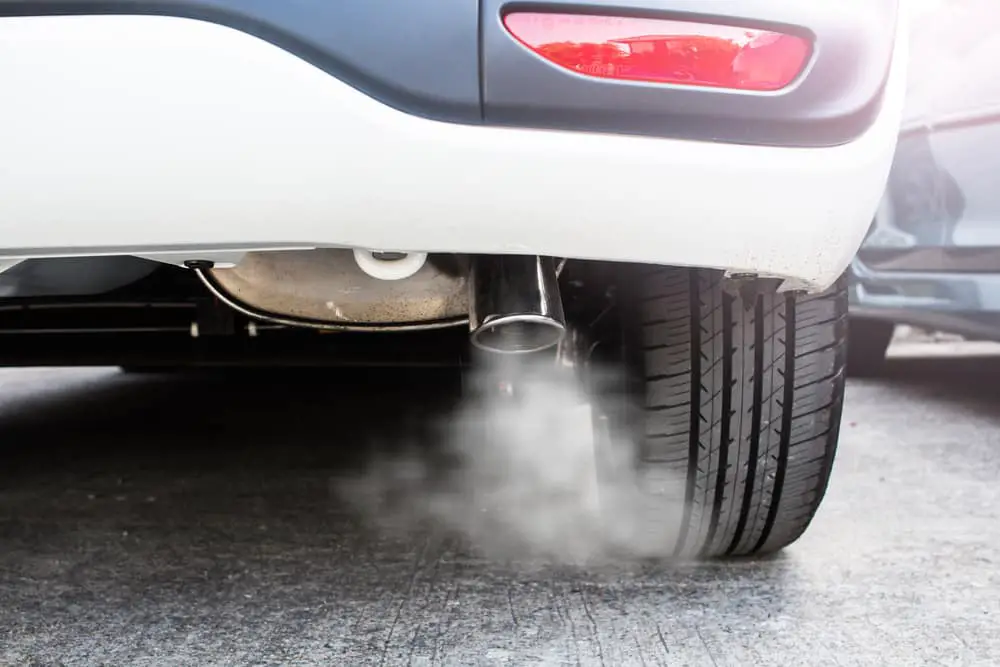If you’re a Toyota owner dealing with car smoke, it’s natural to feel concerned about what’s going on under the hood. The sight of smoke can trigger an array of worries—from engine damage to sensor malfunctions. One question that often comes up is whether a cold switch sensor (also known as the coolant temperature sensor) could be behind this issue.
Can a cold switch sensor actually cause a smoking problem in your Toyota? The answer might surprise you. Let’s dive deep into the role of this small but crucial component and how it might be connected to that unsettling smoke.
What is a Cold Switch Sensor?
It’s essential to understand what the cold switch sensor does. This sensor measures the temperature of the engine’s coolant and sends that information to the car’s onboard computer. In turn, the computer adjusts various engine functions, such as fuel injection and ignition timing, to ensure optimal performance based on the engine’s temperature.
This sensor plays a important role in helping your car run smoothly, particularly during cold starts when the engine needs more fuel to reach its operating temperature. So, in short, it ensures that the car runs efficiently by providing the engine with just the right amount of fuel at the right time.
How Does the Cold Switch Sensor Affect Engine Performance?
The cold switch sensor doesn’t just sit there passively. It actively adjusts engine parameters that affect performance. A malfunctioning sensor can throw these adjustments off balance, leading to a cascade of issues. When it works correctly, it fine-tunes the air-fuel mixture and ignition timing to suit the current temperature conditions.
If the sensor sends faulty data, it could lead to an overly rich or lean air-fuel mixture, impacting engine combustion. This miscalculation in fuel could also cause excess fuel to burn in the exhaust system, potentially leading to the formation of smoke.
Signs of a Faulty Cold Switch Sensor in a Toyota
When a cold switch sensor starts to fail, it doesn’t always go out with a bang. Instead, it can cause a series of smaller, more subtle problems. Here are some common signs that could indicate an issue with the cold switch sensor:
- Frequent Engine Misfires: A faulty sensor can cause incorrect fuel delivery, leading to misfires, especially during cold starts.
- Poor Fuel Efficiency: The engine may use more fuel than necessary, leading to lower fuel efficiency and higher emissions.
- Check Engine Light Comes displays on Dashboard: One of the most obvious signs is the illumination of the check engine light, which pops on the car dashboard.
- Overheating: If the sensor doesn’t provide accurate temperature readings, the engine could overheat, which could ultimately lead to more severe engine problems.
- Unexplainable Smoke from the Exhaust: When excess fuel burns in the exhaust system, it can cause smoke, which could be white, blue, or black, depending on the issue.
Why Your Toyota Might Smoke Due to the Cold Switch Sensor
Now, let’s focus on how a malfunctioning cold switch sensor could directly cause your car to smoke. Smoke coming from the exhaust is often an indicator that something is not burning properly in the engine. There are several types of smoke, each suggesting a different issue:
- White Smoke: Usually, this means coolant is leaking into the combustion chamber. While the cold switch sensor itself wouldn’t cause this leak, it could exacerbate it by providing incorrect temperature data, leading to further engine issues.
- Blue Smoke: This usually indicates oil burning in the engine. If the cold switch sensor causes the engine to run too rich (too much fuel), it can increase the likelihood of oil entering the combustion chamber, leading to blue smoke.
- Black Smoke: This is a sign of incomplete combustion, often due to excess fuel. If the cold switch sensor is faulty, it may cause the engine to inject too much fuel, leading to black smoke.
So, while the cold switch sensor may not be directly responsible for creating smoke, it can certainly contribute to conditions that lead to smoking problems.
Can a Faulty Cold Switch Sensor Lead to Engine Damage?
When left unchecked, a bad cold switch sensor can cause long-term engine issues. If the sensor keeps providing incorrect data, the engine may continuously run too rich or too lean. Both scenarios can lead to serious problems over time, such as:
- Catalytic Converter Failure: If excess fuel is sent to the exhaust, the catalytic converter has to work overtime to clean up the emissions. Over time, this can cause it to fail.
- Excessive Carbon Build-up: A rich fuel mixture can lead to carbon build-up on valves and other internal components, which can reduce engine performance and lead to more severe damage.
- Spark Plug Fouling: The engine may run too rich, leading to fouled spark plugs, which would further degrade performance and exacerbate smoking issues.
How do I Diagnose a Faulty Cold Switch Sensor in Toyota?
If you suspect that your cold switch sensor is causing smoking issues, the first step is to confirm the diagnosis. A professional mechanic can perform a diagnostic scan to check for any fault codes related to the sensor. They will also check the sensor’s resistance and voltage readings to see if they are within the expected range.
In some cases, the problem might not be the sensor itself but related wiring or connectors. Corrosion, loose connections, or damaged wiring can all interfere with the sensor’s performance.
How to Fix or Replace a Faulty Cold Switch Sensor
Once you’ve identified the cold switch sensor as the cause, you can either attempt to repair it or replace it altogether. Replacing the sensor is usually the most straightforward option. The part is relatively inexpensive, and the replacement process isn’t too complex. It’s always a good idea to have a qualified mechanic handle the replacement to ensure the job is done correctly.
If the issue is with the wiring or connectors, those will need to be repaired or replaced as well. In some cases, simply cleaning the sensor or its connectors can resolve the problem.
How do I Prevent Future Smoke Problems in my Toyota?
While it’s not always possible to prevent every issue, there are a few steps you can take to reduce the likelihood of smoke problems caused by a faulty cold switch sensor or other components:
- Regular Maintenance: Keeping up with regular oil changes, coolant flushes, and other routine maintenance can go a long way in preventing sensor and engine problems.
- Monitor the Check Engine Light: Don’t ignore the check engine light when it comes on. It could be an early warning sign of a failing sensor or another issue.
- Listen to Your Engine: If you notice rough idling, engine misfires, or poor performance, get your car checked out before more serious problems develop.
The Role of Other Sensors and Components in Car Smoke
While we’ve focused on the cold switch sensor, it’s essential to remember that many other sensors and components can contribute to car smoke problems. For example, the oxygen sensor, mass airflow sensor, and fuel injectors all play critical roles in the combustion process. If any of these components fail, they can lead to excess fuel consumption, incomplete combustion, and, ultimately, smoke from the exhaust.
When to Seek Professional Help
If you’re unsure about the cause of your car’s smoke or suspect that a sensor is to blame, it’s always best to consult with a professional mechanic. They can perform a thorough diagnostic check to pinpoint the problem and recommend the best course of action. Ignoring smoke from your exhaust could lead to more severe engine damage down the line, so it’s always better to address the issue sooner rather than later.
Conclusion
A cold switch sensor may be small, but its role in your Toyota’s engine performance is huge. Can cold switch cause car smoke problem toyota? While it might not directly cause car smoke, a faulty sensor can lead to a range of problems that ultimately result in smoke coming from your exhaust. If you’re dealing with engine misfires, poor fuel efficiency, or visible smoke, it’s worth having your cold switch sensor checked out. Staying on top of maintenance and addressing issues early can help keep your car running smoothly—and smoke-free—for years to come.

